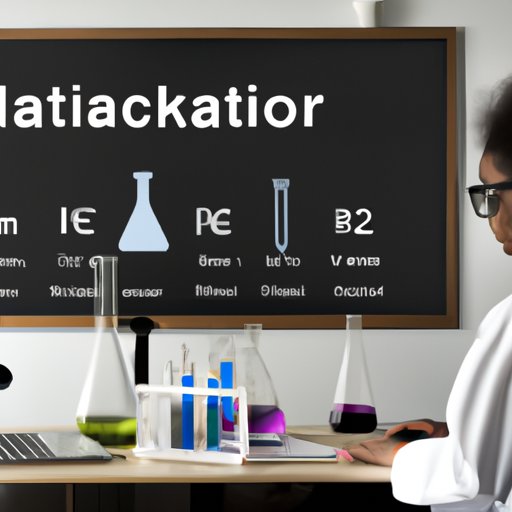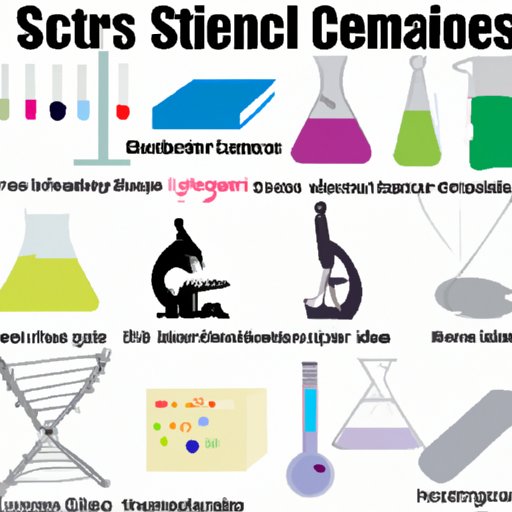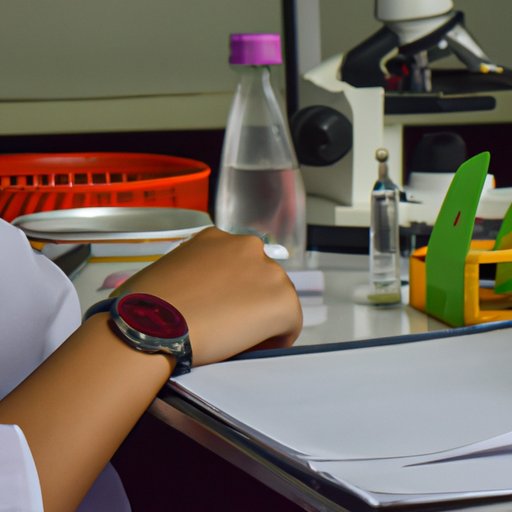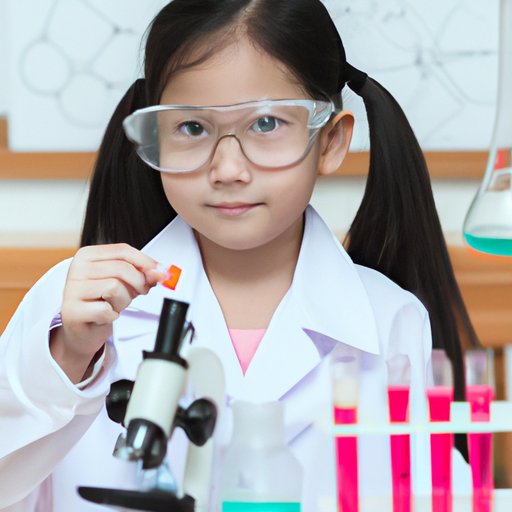Overview of Lab Science Classes: What They Are and What Students Learn
Lab science classes are an integral part of many educational programs. These classes provide students with hands-on experience in a laboratory setting, allowing them to get up close and personal with the scientific concepts they’re learning. But what exactly is a lab science class? And what do students learn in these classes? Let’s take a closer look.
Definition of Lab Science Classes
Lab science classes typically involve both lecture-style teaching and practical work in a laboratory setting. Students in these classes gain firsthand experience with scientific principles and experiments, allowing them to better understand the concepts they’re learning. While the exact structure of each lab science class may vary depending on the school and instructor, generally, students will have the opportunity to apply the theories they’ve learned in lectures to real-world experiments.
What Students Learn in Lab Science Classes
The specific topics covered in lab science classes may vary, but generally, they focus on one or more of the following areas: biology, chemistry, physics, and/or microbiology. Through lectures, readings, and laboratory exercises, students in these classes learn about the scientific method, develop critical thinking skills, and gain a deeper understanding of the scientific concepts they’re studying.

Exploring the Benefits of Taking Lab Science Classes
Taking lab science classes can be beneficial for students from all backgrounds, whether they’re pursuing a career in a STEM field or simply looking to expand their understanding of science. Here are just a few of the potential benefits of taking lab science classes.
Developing Critical Thinking Skills
One of the key benefits of taking lab science classes is the development of critical thinking skills. According to a study conducted by the University of Queensland, lab science classes can help students “develop a range of cognitive skills, including problem-solving, decision-making, and critical thinking.” This can be particularly beneficial for students who are interested in pursuing a career in a STEM field, as employers often value critical thinking skills.
Gaining a Better Understanding of Scientific Concepts
In addition to developing critical thinking skills, lab science classes can also help students gain a better understanding of scientific concepts. By engaging in hands-on activities and experiments, students can learn about the process of scientific inquiry and gain a deeper understanding of the subject matter. This can be especially helpful for students who struggle to comprehend the material when it’s only presented in a lecture format.
Enhancing Problem-Solving Skills
Lab science classes can also be beneficial for students who want to improve their problem-solving skills. In a lab setting, students are given the opportunity to practice their problem-solving skills by working through various experiments and tasks. This can help them develop the ability to think quickly and creatively when faced with a challenging problem, which can be beneficial in both academic and professional settings.

Choosing the Right Lab Science Class for You
When choosing a lab science class, it’s important to consider your goals and research the courses offered at your school. Here are a few tips for choosing the right lab science class for you.
Consider Your Goals
Before selecting a lab science class, it’s important to consider your goals. Are you looking to gain a better understanding of scientific concepts? Are you hoping to develop your problem-solving skills? Do you want to pursue a career in a STEM field? Answering these questions can help you determine which lab science class is right for you.
Research the Courses Offered
Once you know what you’re looking for in a lab science class, it’s time to start researching the courses offered at your school. Most schools offer a wide variety of lab science classes, so take the time to read through the course descriptions and compare different options. This will help you find a class that fits your needs and interests.
Speak to a Professor or Advisor
If you’re still not sure which lab science class is right for you, it’s a good idea to speak to a professor or advisor. They can provide valuable insight into the different courses offered and offer advice on which class is best suited to your needs. Talking to a professor or advisor can also help you gain a better understanding of the expectations and requirements of the class.

Common Topics Covered in Lab Science Classes
The topics covered in lab science classes may vary depending on the school and instructor, but generally, they include one or more of the following areas:
Biology
Biology is the study of living organisms and their interactions with their environment. In a lab science class focused on biology, students may learn about cell structure, genetics, evolution, ecology, and other related topics. They may also have the opportunity to observe and analyze living organisms, such as plants and animals.
Chemistry
Chemistry is the study of the composition, structure, and properties of substances and the reactions between them. In a lab science class focused on chemistry, students may learn about chemical reactions, atomic structure, thermodynamics, and other related topics. They may also have the opportunity to perform experiments in a lab setting.
Physics
Physics is the study of matter, energy, and the laws of nature. In a lab science class focused on physics, students may learn about motion, forces, electricity, magnetism, light, and other related topics. They may also have the opportunity to use specialized equipment to measure and analyze physical phenomena.
Microbiology
Microbiology is the study of microscopic organisms, such as bacteria, viruses, and fungi. In a lab science class focused on microbiology, students may learn about microbial growth and development, pathogenic organisms, and other related topics. They may also have the opportunity to observe and analyze microorganisms in a lab setting.

Preparing for Success in Lab Science Classes
To ensure success in lab science classes, it’s important to get organized, stay up to date on course material, and ask questions. Here are a few tips for preparing for success in lab science classes.
Get Organized
One of the keys to success in lab science classes is organization. Set up a system to keep track of assignments, due dates, and other important information. This will help you stay on top of your work and ensure that you’re prepared for upcoming tests and projects.
Stay Up to Date on Course Material
It’s also important to stay up to date on course material. Make sure you’re reading the assigned readings and taking good notes during lectures and labs. This will help you better understand the material and be prepared for upcoming tests and projects.
Ask Questions
Finally, don’t be afraid to ask questions. If you’re having trouble understanding a concept or completing an assignment, don’t hesitate to reach out to your professor or classmates for help. Asking questions can be a great way to gain a deeper understanding of the material.
Challenges Faced in Lab Science Classes
Though taking lab science classes can be a rewarding experience, there are also some challenges that students may face. These include keeping up with the workload, understanding complex concepts, and dealing with laboratory safety protocols.
Keeping Up with the Workload
Lab science classes can be demanding, and it’s important to keep up with the workload. Take the time to review your notes and make sure you’re staying on top of assignments and readings. This will help you stay on track and ensure that you’re prepared for upcoming tests and projects.
Understanding Complex Concepts
Lab science classes often involve complex concepts that can be difficult to understand. If you’re struggling to comprehend the material, don’t hesitate to reach out for help. Talk to your professor or classmates, attend office hours, and take advantage of online resources to gain a better understanding of the concepts.
Dealing with Laboratory Safety Protocols
Finally, it’s important to adhere to laboratory safety protocols. Before performing any experiment, make sure you understand the safety rules and procedures. Following safety protocols is essential to ensure the safety of everyone in the lab.
A Look at Popular Lab Science Courses Offered Around the World
Lab science classes are offered around the world, with different courses available in different countries. Here’s a look at some of the popular lab science courses offered in different parts of the world.
United States
In the United States, popular lab science classes include Biology, Chemistry, Physics, and Microbiology. Other courses may also be available, depending on the school.
Europe
In Europe, popular lab science classes include Biochemistry, Molecular Biology, Genetics, and Cell Biology. Other courses may also be available, depending on the school.
Asia
In Asia, popular lab science classes include Biotechnology, Biomedical Engineering, and Environmental Science. Other courses may also be available, depending on the school.
Australia
In Australia, popular lab science classes include Marine Science, Ecology, and Earth Science. Other courses may also be available, depending on the school.
Latin America
In Latin America, popular lab science classes include Astronomy, Botany, and Zoology. Other courses may also be available, depending on the school.
Conclusion
Lab science classes are an integral part of many educational programs. These classes provide students with the opportunity to gain firsthand experience with scientific principles and experiments. They also allow students to develop critical thinking skills, gain a better understanding of scientific concepts, and enhance their problem-solving skills. When choosing a lab science class, it’s important to consider your goals and research the courses offered at your school. Common topics covered in lab science classes include biology, chemistry, physics, and microbiology. To ensure success in a lab science class, it’s important to get organized, stay up to date on course material, and ask questions. Though taking lab science classes can be a rewarding experience, there are also some challenges that students may face, such as keeping up with the workload and understanding complex concepts. Popular lab science courses are offered around the world, including in the United States, Europe, Asia, Australia, and Latin America.
(Note: Is this article not meeting your expectations? Do you have knowledge or insights to share? Unlock new opportunities and expand your reach by joining our authors team. Click Registration to join us and share your expertise with our readers.)
